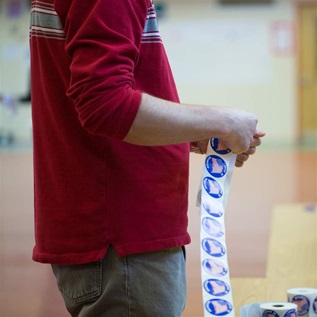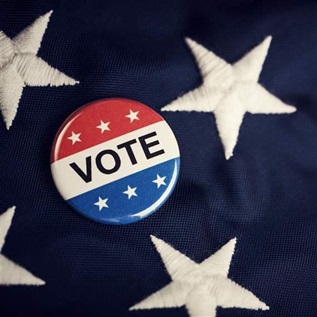Pew Applauds North Carolina for Landmark Military and Overseas Voters Act
The North Carolina Uniform Military and Overseas Voters Act (HB 514) was signed into law today by Gov. Bev Perdue (D) at a ceremony in the old capitol building in Raleigh. The legislation, which passed with overwhelming bipartisan support, makes significant changes to the voting process so that North Carolinians abroad can more easily participate in all elections, and helps ensure that their votes will be counted.
State Rep. Grier Martin (D-Wake, District 34), a member of the U.S. Army Reserve, introduced the bill and was the primary House sponsor. State Sen. Peter Brunstetter (R-Forsyth, District 31) led efforts to secure bipartisan support in the North Carolina Senate. The law, which was supported by the Pew Center on the States, ensures that service members and civilians overseas receive their ballots earlier and faster, and removes obstacles in the voting process.
“Thanks to the leadership of Representative Martin and Senator Brunstetter, North Carolinians overseas have a better opportunity to participate in the democratic process here at home,” said Doug Chapin, director of Election Initiatives for the Pew Center on the States. “With the state's significant military population, this law is critical to ensuring that tens of thousands of service members, as well as civilians overseas, will be able to cast a ballot and have it counted.”
North Carolina, which has the fifth-largest population of military personnel in the nation, is the one of the first states to adopt comprehensive protections for voters abroad set forth in the Uniform Military and Overseas Voters Act. This is a model law drafted and approved in 2010 by the Uniform Law Commission, which promotes legislation across states to address common problems.
The legislation significantly improves the voting process and removes obstacles that military and overseas voters commonly face in federal and state elections by:
- mandating that absentee ballots be sent 45 to 60 days in advance of the polling date;
- providing electronic transmission of unmarked absentee ballots;
- accepting the Federal Write-In Absentee Ballot (FWAB) for all elections as a backup measure for voters who do not receive their official ballots in time;
- accepting the FWAB simultaneously as a ballot application and a voted ballot; and
- eliminating the witness requirement on ballots from military and overseas voters.
In 1952, President Harry Truman urged reform of an election system that disenfranchised those serving in the military in World War II and in the postwar reconstruction. A Pew report, No Time to Vote, documented the significant challenges they still face in order to cast a ballot. Through Pew's efforts, similar laws have passed in several states with significant military populations during 2011 legislative sessions. Pew has also been examining the problems posed by the nation's outdated voter registration system and partners with election officials to evaluate options for building a system that is more efficient and accurate, while reducing costs and administrative burdens.
For more information on Pew's Election Initiatives, visit www.pewstates.org/elections.
The Pew Center on the States is a division of The Pew Charitable Trusts that identifies and advances effective solutions to critical issues facing states. Pew is a nonprofit organization that applies a rigorous, analytical approach to improve public policy, inform the public and stimulate civic life. www.pewstates.org






